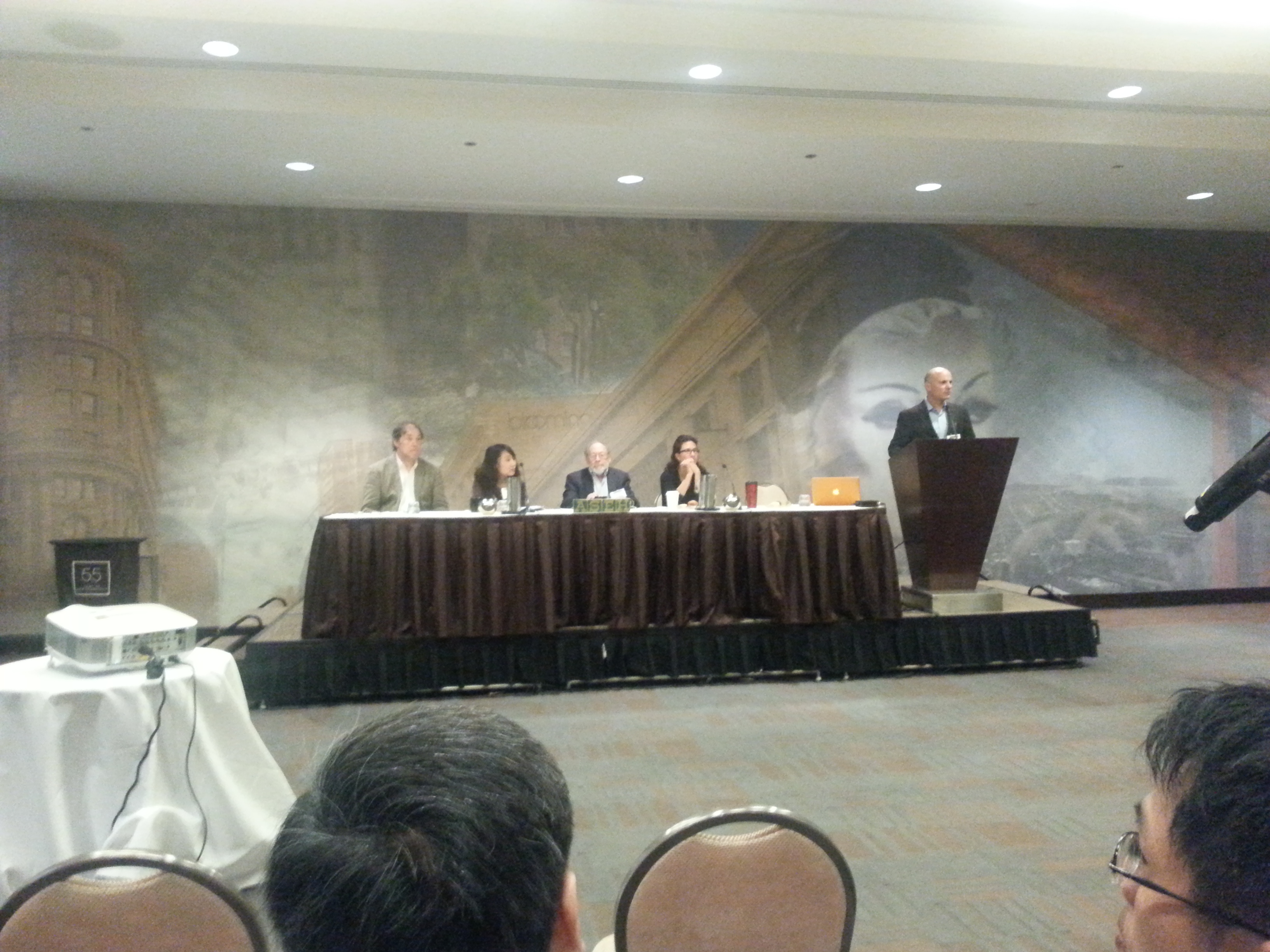生态史中心参加ASEH旧金山会议
2014年3月12日-2014年3月16日
Center for Ecological History at International ASEH Conference in San Francisco,
12-16 March 2014
Every year the American Society for Environmental History invites members and friends from all around the globe, to present their research, discuss ideas, and meet old and new friends. At this year's event the Center for Ecological History at RUC was also well represented.

Thursday morning, a keynote round table under the title, “Lost in Translation: Environmental History in a Global Context,” discussing challenges for global environmental history was to kick start the conference. The plenary session sponsored by the Rachel Carson Center for Environment and Society (RCC) featured the center's affiliate scholars Hou Shen (RUC), Donald Worster (RUC), and Christof Mauch (RCC Munich), alongside Claudia Leal (Universidad de los Andes – Bogota, Columbia), and John Agbonifo (in absentia; Osun State University – Osagbo, Nigeria)), the session was moderated by David Biggs (University of California - Riverside).
Responding to the increasing attention environmental history has gained especially over the last decade, this plenary was designed to address the scholarly consequences of this trend. The multi-national practitioners gave insights into their own work in cross-cultural and cross-language research. Here, the Chinese example in particular stimulated the audiences' curiosity, as cultural and linguistic differences are obvious. But all participants had experienced struggles in translating the predominant ideas and norms in other cultural and linguistic contexts. For example: How does one translate such terms as nature, conservation, and wilderness? As especially the latter one turned out problematic for Latin American scholars, as their language does not provide any equivalent concept. Other challenges faced by international researchers trying to foster the growing of the field, and implementing a supporting academic infrastructure in their national contexts are mainly availability of scholarly resources and limited funds, what in return affects the international outreach.

The same day afternoon, the session “ China and the West in 20th Century Environmental History,” organized by Donald Worster provided the interested audience an overview about the current leading research on environmental history there. Chaired by Robert Marks (Whittier College, USA), the panel consisted of China's leading experts in the field: Xia Mingfang (Renmin University of China), Mei Xueqin (Tsinghua University,), Guo Gaorong (Chinese Academy of Social Sciences).
Xia Mingfang's initial presentation addressed “The Republican Revolution of China in the Transformation of the Global Ecologial System,” he especially pointed at the importance of super structure of disasters. Mei Xueqin presented a Beijing regional case study “The Machine in the Valley: British Mechanization of the Chinese Coal Industry and Its Environmental Effects.” Looking at the Mentougou Coal mine, she not only identified the social challenges of environmental destruction, but also changes in consumption patterns, directly related to foreign involvement. In the third paper, “Chinese Reflections of on the Dust Bowl and the 1930s Crisis in American Agriculture,” Gao Guorong looked at Chinese coverage of the event, as well as an exchange in expertise, here featuring Lowdermilk for the Sino-American cooperation in soil conservation at Dacheng.
The concluding discussion reflected the global interest in Chinese environmental historical topics. As inspired by all three presentations the deep entanglement of national environmental histories became apparent. The first two case studies in particular emphasized the state as semi-colony, and the role of foreign capital. They showcased the global ecological integration of China already in the late 19th and early 20iest century. It also became clear, how fruitful comparative approaches are, especially in the context of industrializing China.

All in all the ASEH was a great success for the CEH.
|









 位访客,京ICP备05020700号
位访客,京ICP备05020700号